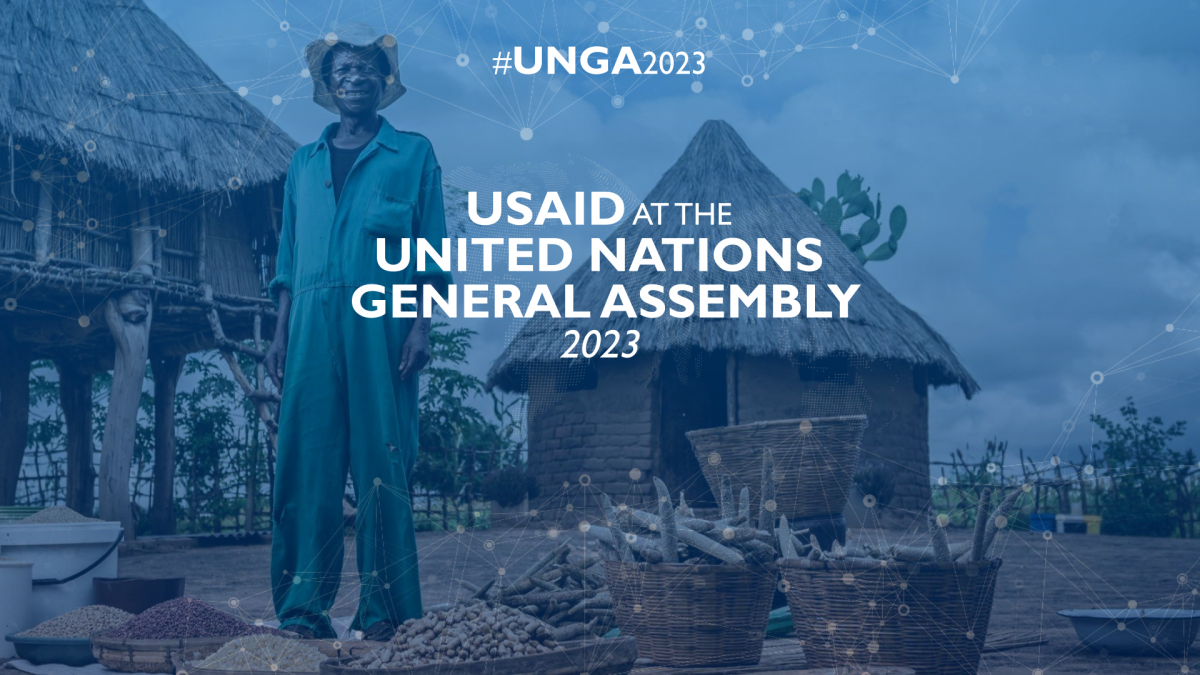Interview
RAVI AGRAWAL: Hello and welcome to FP Live. I'm Ravi Agrawal, Foreign Policy’s Editor-in-Chief. Heads of state and top leaders will arrive in New York over the next few days to participate in the annual gathering known as the United Nations General Assembly. The UNGA is where governments work together to reach agreement on global issues. They also, of course, try to advance their country's foreign policies. Now when it comes to America's foreign policy, other than its UN mission, the Biden Administration also relies on the U.S. Agency for International Development [USAID]. USAID plays a crucial role in devising development strategy, and addressing critical national security concerns.
There is no shortage of places that need aid and development today – there have been awful natural disasters this year in Libya, Morocco, Turkey, and beyond. And then there are man-made disasters and conflicts, which FP readers are all too familiar with.
So how does USAID figure out where to leverage its influence? That is what Samantha Power is tasked with. She is the Administrator of USAID, she previously served in the Obama Administration as UN Ambassador, she has taught at Harvard, and she has also won a Pulitzer Prize for her book about genocide, and she joins me now.
Administrator Power, welcome to FP Live.
ADMINISTRATOR SAMANTHA POWER: Great to be here.
AGRAWAL: It's our pleasure. So let's start with a preview of next week. USAID has a very large portfolio, you deal with conflicts and crises around the world. What are your main priorities?
ADMINISTRATOR POWER: Our main priorities, of course, align with the most urgent, pressing needs in the world. And so we are starting, myself and Secretary [Janet] Yellen are co-chairing an event with President [William] Ruto and the Norwegians, and the African Development Bank on food security. With all of the emergencies that you mentioned, a lot of resources are getting channeled into emergency response, into keeping people alive in the face of flooding or in the face of mass drought in the Horn of Africa, and elsewhere.
It's really important that we keep sight on the longer term investments in resilience so that the next drought, the next flood, is less damaging to human life and human welfare and livelihood. So that's what that event is about. We will be discussing new investments, new means of bringing in the private sector as well, to supporting agribusiness in a climate-smart way. And I think it's going to end up having lasting positive effects, what we do in that meeting.
Secretary [Antony] Blinken and I then, are going to be doing an event on democracy delivering, which I think also is really attempting to meet the moment. This is actually the second such event we've done together where instead of only focusing on the places where there is democratic backsliding, which is government's temptation – because there's always a crisis to look at – look at the number of coups that have occurred in sub-Saharan Africa in recent months and years. We actually are bringing reformers together and saying how do we help people who are actually liberalizing, who are opening up political space? Not perfect democrats – there are no perfect democrats anywhere – but where there is reform opening, where there are net gains in freedom. How do we ensure that the private sector is taking notice, that foundations are taking notice, that we at USAID are channeling maybe more fertilizer assistance there, more support for social safety nets. Again, taking some of the lessons for why democracy has been on its back heel for so long, partly because it's under attack. But partly it is that democrats, when they come into office are seen in many cases not to be delivering socioeconomically for citizens.
So there'll be a number of announcements there, but also to hear from leaders who are doing hard things and amplify what they are doing, so people take more notice of the fact that not all the news is doom and gloom. There are actually people who are willing to take real risks, to try to open political space instead of closing it.
And then of course, climate looms over everything everywhere at all times. And so yes in the food security context, but looking at what more we can do in terms of early warning systems, bringing NASA into partnerships to engage with countries.
And all of us – President [Joe] Biden, myself, Secretary Blinken will be doing bilateral meetings, and also regional meetings of areas where USAID and the rest of the U.S. government are doing bigger things now than we have been in the past.
The Pacific Islands, President Biden will be doing a summit on that in Washington after the UN General Assembly. Central Asia, though, where USAID has just recently expanded its presence, its missions, its work.
So there are a lot of places where development needs are outpacing resources. And we are trying to come in as USAID but also to bring with us other stakeholders, particularly the private sector – that really the thinking in terms of blended finance and catalytic capital is much more of the way we're having to do business now. Again, because the gaps are too great.

